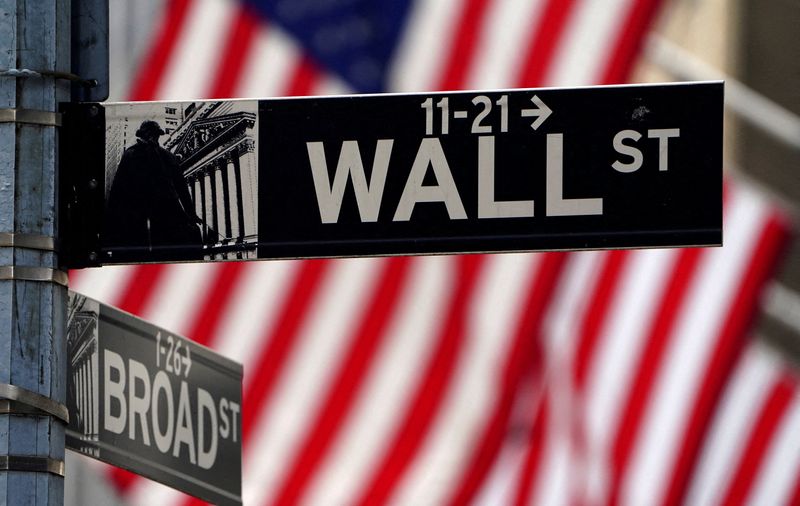(Reuters) – It is a massive week for central banks, with policymakers in the USA, Japan and Britain all as a consequence of rethink lending charges and markets on edge over extra earnings from U.S. tech giants.
In Venezuela, voters head to the polls to elect a president.
Here is your have a look at what’s occurring in markets within the coming week, from Kevin Buckland in Tokyo, Ira Iosebashvili and Rodrigo Campos in New York and Amanda Cooper in London.
1/SEPTEMBER QUESTION
The steep selloff in markets in latest days is shining a highlight on the Federal Reserve, which concludes its July financial coverage assembly on Wednesday.
Indicators of financial concern from the Fed may give buyers – already unnerved by turbulence in U.S. tech shares – but one more reason to fret. As it’s, buyers consider the time to ease financial coverage is swiftly approaching: futures tied to the Fed funds price present buyers pricing in a greater than 90% likelihood of a September price reduce amid proof of cooling inflation and a nascent downshift within the jobs market.
U.S. employment information due Aug. 2 will give buyers the chance to evaluate whether or not the gradual indicators of slowing that bolstered price reduce expectations have continued in July. Economists polled by Reuters anticipate the U.S. to have created 185,000 jobs in July, in contrast with 206,000 within the prior month.
2/TECH TANTRUMS
Spooked buyers additionally face a minefield of Huge Tech earnings, with misses threatening to additional upend a market roiled by worries over stretched inventory valuations.
Microsoft (NASDAQ:) is scheduled to report earnings on Tuesday, adopted by Fb-parent Meta (NASDAQ:) on Wednesday and Apple (NASDAQ:) and Amazon (NASDAQ:) on Thursday. Disappointing numbers may re-ignite the concerns that brought on a crushing selloff in U.S. shares on Wednesday, when each the and Nasdaq suffered their worst day since late 2022.
The large run-up in tech shares could have set a excessive bar for his or her outcomes. Google-parent Alphabet (NASDAQ:), whose earnings had been one of many triggers for the latest selloff, really reported better-than-expected income, however buyers grew cautious that rising spending on AI infrastructure may squeeze margins, sending the shares 5% decrease.
3/HIKES AND SPIKES
Hypothesis is rising that the Financial institution of Japan may hike charges on Wednesday after high-profile politicians – together with the prime minister – hinted on the want for near-term coverage normalisation.
It is not the necessity to finish a long time of extraordinary stimulus, per se, that’s on the coronary heart of their arguments. Moderately, the weak yen’s choking impact on households and companies that appears to be turning the trade price right into a central challenge for the ruling Liberal Democratic Get together’s management conference in September.
The truth that the foreign money has rebounded by a staggering 10 yen per greenback from three-decade lows in the beginning of the month hasn’t deterred some from predicting a July hike. They argue the BOJ can get probably the most bang for its buck by mountain climbing right into a rallying yen. Others fear a fragile economic system and weak shopper sentiment could not climate larger borrowing prices, with slowing U.S. progress set to have a knock-on impact already.

4/STICKY ISSUES The Financial institution of England meets on Thursday and proper now, markets see a roughly 48% likelihood that charges will fall for the primary time since March 2020. Progress is modest and shopper inflation has returned to 2%. But wage progress and service-sector inflation are proving sticky and working hotter than a variety of policy-setters on the Previous Woman of Threadneedle Avenue, because the Financial institution of England is understood, would love. Clare Lombardelli, the brand new deputy governor, could maintain the deciding vote, as the opposite eight Financial Coverage Committee members are break up evenly on whether or not to carry or reduce. British shoppers is likely to be feeling the pinch of rates of interest at greater than 14-year highs, however banks have actually reaped the advantages. Markets will watch outcomes from HSBC, Barclays and Customary Chartered (OTC:) to get a way of how nicely they’re prone to fare when borrowing prices, and the revenue they make on them, begin to fall.
5/A MULTI-BILLION QUESTION Venezuelans will elect a president on Sunday. Opposition candidate Edmundo Gonzalez leads polls by 20 factors over incumbent Nicolas Maduro, who has pledged the election shall be clear, however compelled the winner of the opposition main, Maria Corina Machado, out of the race. The outcomes and dealing with of the vote is one half of the puzzle figuring out future U.S. sanctions on Venezuela – the battle for the White Home is, after all, but to return in November. Present curbs embrace a ban on shopping for bonds immediately from Venezuela’s authorities. That precludes, for now, a restructuring of some $60 billion in worldwide bonds owed by the federal government and state-owned oil agency PDVSA. Venezuela’s and PDVSA’S defaulted bonds commerce at deeply distressed ranges of 13-22 cents, however have rallied sharply from late final yr’s single-digits. Buyers are watching Maduro’s dealing with of the election very carefully.




